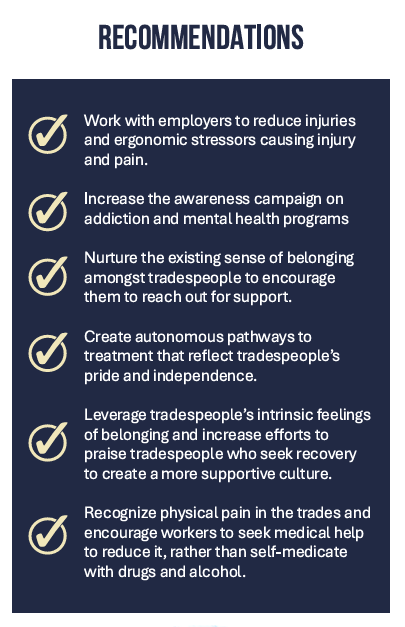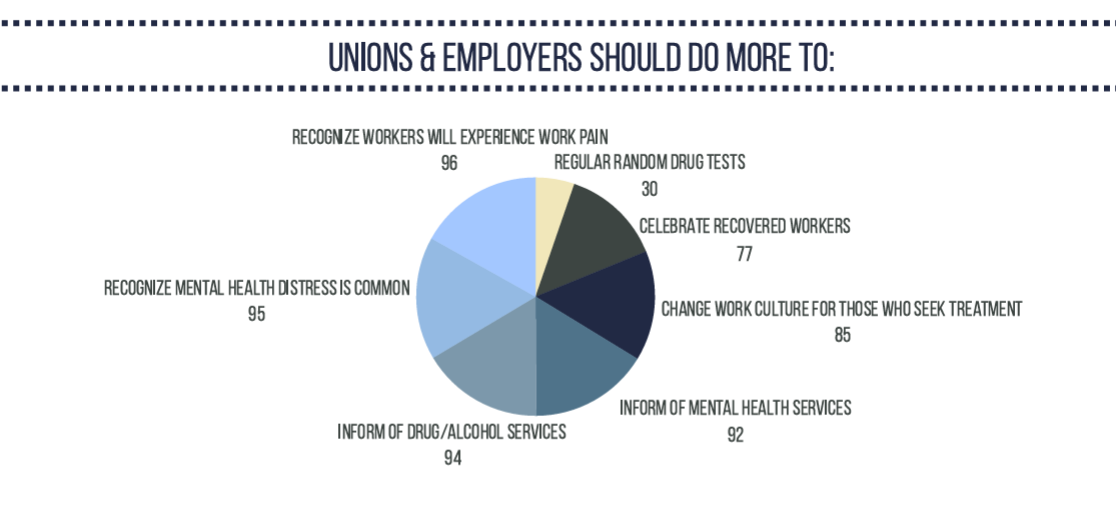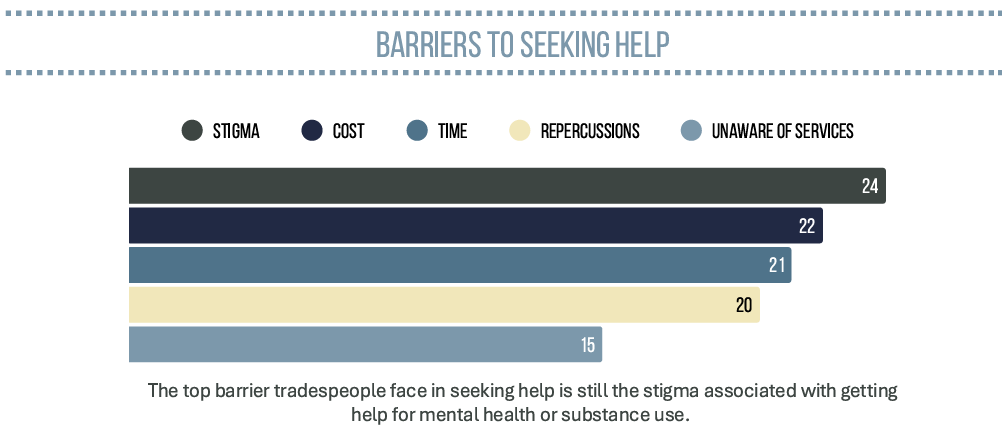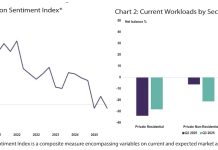CADCR staff writer
Canada’s Building Trades Unions (CBTU) has released a report highlighting the mental health and substance use challenges faced by the country’s 600,000 skilled trades workers. Prepared by the Douglas Coldwell Layton Foundation, the report draws attention to the pressures inherent in trades work and the supportive role unions play in addressing these issues.
Surveying over 1,000 members across 60 skilled trades, the report found nearly half of tradespeople rate their mental health as fair or poor. Commonly reported issues include stress (77%), anxiety (62%), burnout (50%), depression (45%), and insomnia (38%). The study also points to a link between job-related physical pain, substance use as a coping strategy, and difficulties accessing mental health support.
 Despite these challenges, tradespeople reported a strong sense of community within their unions, more so than workers in other sectors—a factor the report identifies as crucial in supporting member well-being.
Despite these challenges, tradespeople reported a strong sense of community within their unions, more so than workers in other sectors—a factor the report identifies as crucial in supporting member well-being.
“This Labour Day, we recognize the immense contributions of our members to building and maintaining Canada’s infrastructure,” said Sean Strickland, Executive Director of CBTU. “This report confirms what we’ve long suspected: our members face pressures that take a toll on their mental well-being. But it also underscores the unique strength of our union structure in providing a built-in support network. We are committed to leveraging this strength while addressing the challenges head-on.”
In response, CBTU announced the creation of a nationwide Mental Health and Substance Use Committee, drawing representatives from all affiliated unions to coordinate support and share best practices.
“This committee signifies a unified commitment from all corners of the CBTU to prioritize the mental health of our members,” said Robert Kucheran, Chairman of the CBTU Executive Board. “By advocating for consistent standards, we can provide comprehensive support, strengthen bonds within our unions, and create lasting positive change. This Labour Day, we recommit ourselves to the well-being of every tradesperson in Canada.”
 Key findings from the report include:
Key findings from the report include:
- Tradespeople feel more supported by their union community than workers in other sectors.
- Nearly half rate their mental health as fair (29%) or poor (17%).
- 62% of workers who report poor mental health say their job significantly affects it.
- 25% use substances daily or weekly to cope with mental health challenges.
- Stigma remains a major barrier to accessing mental health and addiction programs.
- 84% believe their union offers necessary mental health supports, but only 10% have used them.
 Recommendations for improvement:
Recommendations for improvement:
- Increase awareness of mental health and addiction programs within unions.
- Work with employers to reduce workplace injuries and ergonomic stressors.
- Foster a sense of belonging to encourage help-seeking.
- Recognize the impact of physical pain and encourage medical support.
The report highlights the strong sense of community within unions can serve as a foundation for meaningful improvements in the mental health and well-being of tradespeople across Canada.
The full report is available at buildingtrades.ca/mental-health-and-substance-use/






